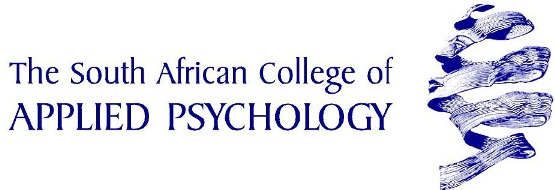Prerequistites: Counselling Methods
Module Purpose:
The purpose of this module is to provide for the trainee counsellor a comprehensive framework for the counselling process and the development of core counselling competencies. Students are provided with extensive opportunities to develop the skills and knowledge necessary for their own counselling role and identity. Students develop skills in attending; reflective responses (paraphrasing/reflecting feelings/active listening”; expressing empathy; asking questions; probing; summarising; challenging; and action planning. Students engage in reflection and self-examination to develop their skills and monitor their own counselling behaviour. This module provides the foundation for further specialised counselling skill development and forms an essential base for specialised counselling modules and is a prerequisite for Counselling Skills 2. This is a core module in the Certificate IV and Diploma in Counselling and Communication.
Content:
- The content area of this module introduces the student to the theory and practice of core counselling competencies. Throughout the module the student develops skills to establish their own counselling role and identify, to form a professional counselling relationship, to structure and manage the counselling process; to assist clients in setting goals; and to become self-reflective within the counselling role. Students engage in a process of reflection and self-examination throughout their study.
- Use and apply the terminology and concepts of counselling
- Demonstrate, analyse and evaluate the application and integration of core concepts of counselling theory and skills: understand the terminology and concepts of counselling definitions, Egan’s Skilled Helper model. Explore alternative models of counselling. Identify the core concepts of counselling. The contexts for counselling in the workplace, and distinctions between “counselling” and “therapy”
- Demonstrate counselling skills and conduct an initial counselling session
- Identify and understand social, legal and ethical issues in counselling and within the counselling role and appreciate the limitations of counselling: discuss ethics, roles, extent of counselling skills and attributes of a counsellor: clarify the extent of the counselling role; the limits of counselling skills, ethics of counselling, maintaining and developing helping skills and the limits of the client/counsellor relationship
- Establish appropriate and effective counselling goals and action plans with clients: discuss goal setting and action planning; define client’s goals and workable action plans.
Learning Outcomes:
- Use the terminology and concepts of counselling
- Demonstrate, analyse and evaluate the application and integration of core counselling theory and skills
- Demonstrate counselling skills and conduct an initial counselling session
- Identify and understand the social, legal and ethical issues in counselling within the counselling role and appreciate the limitations of counselling
- Establish appropriate and effective counselling goals and action plans with clients


No comments:
Post a Comment
Note: Only a member of this blog may post a comment.